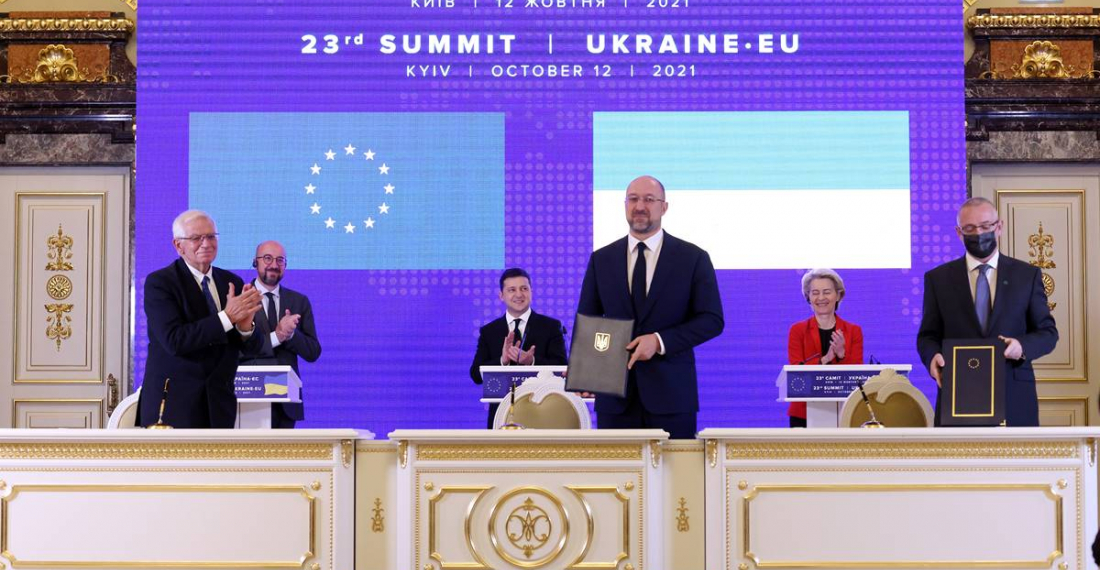The European Union wants to support Ukraine avoid low gas supplies next winter despite the fact that the EU itself has a shortage of gas and energy prices are rising. This was stated after the 23rd summit between the European Union and Ukraine held in Kyiv on Tuesday (12 October).
“We will also work closely with you, with Ukraine, in order to increase gas supply capacity coming from Member States of the European Union.”, President of the European Commission, Ursula von der Leyen, said on a visit to the Ukrainian capital. Ukraine could get more gas from gas pipelines in Slovakia, she suggested at the EU-Ukraine summit.
The summit was overshadowed by the new Nord Stream 2 gas pipeline and the country's gas shortage. Ukraine feels sidelined by Berlin's decision to go ahead with the project, and argues that it was not taken into account when making a decision.
The Ukrainian president, Volodymyr Zelenskyy, says the gas pipeline is a threat to his country's independence.
Ukraine has been increasingly depending on gas supplies through Slovakia after Russia, which used to be Ukraine main energy supplier, cut off a direct gas pipeline in 2015. The two countries have been at odds since Russia's annexation of Crimea and Moscow's support in the uprising in eastern Ukraine.






